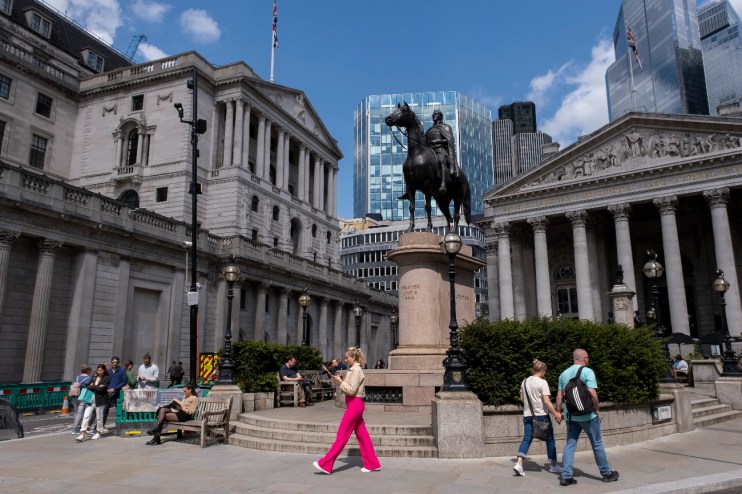Arm maintaining its lofty US valuation will be indicator for London IPO revival

Shares in Softbank’s Arm have taken flight, surging nearly 25 per cent above their Nasdaq debut price, marking a triumphant return to the public markets after a seven-year hiatus for the chip designer.
A loud reception has bolstered market experts’ optimism for beleaguered IPOs, which has faced substantial headaches in recent years, such as rising interest rates and geopolitical tensions.
But it also raises questions about London’s ability to attract high-profile listings following a string of departures from the capital.
The initial public offering (IPO), initially priced at $51, opened at $56.10 and closed at $63.59, valuing the Cambridge-based company at $65bn (£52.3bn).
“The company’s rise has been nothing short of stellar,” said Susannah Streeter, head of money and markets at Hargreaves Lansdown.
However, the decision to list in New York instead of London has disappointed many, including the UK government, which is seeking to position London as a tech hub.
Although the City has begun to make changes to try to make London more attractive to founder led firms by simplifying listing rules, “the changes aren’t yet cutting through,” said Streeter.
“Listings in the UK have reduced by 40 per cent since 2008, and there are no further big IPOs in the pipeline in London this year.”
German sandal makers Birkenstock’s decision to float in the US this week is another blow to London.
Arm’s IPO success has brought a glimmer of hope to the UK’s IPO market, which has experienced a dry spell of late.
Victoria Scholar, head of Investment at interactive investor, said the chip company’s blockbuster opening has potential to “pave the way for a rebound in investor appetite for flotations ahead”.
But maintaining its lofty valuation is another story and will depend on how successfully Arm can use artificial intelligence (AI) to grow and compete with the likes of Nvidia.
In the near term, Arm’s fortunes will be closely tied to the AI wave, which companies have tried to leap onto despite its volatility and uncertain future.
Arm’s blueprints already power many AI applications and the firm is striving to become central to the next wave of innovation, focusing on data centre demand.
But it will also need to navigate challenges in the smartphone and consumer electronics markets, which use plenty of chips but are in the midst of their own struggles as people hang on to their old phones for longer.
“Last year’s revenue stagnation has been stomached but a protracted period of sluggishness is unlikely to be taken well,” explained Sophie Lund-Yates, lead equity analyst at Hargreaves Lansdown.
There is some fair confidence in Arm though, whose business model, based on licensing and royalties, provides a clear earnings outlook and resilience in challenging environments.
“While growth will be low this year, it is expected to accelerate quickly in 2024. Margins could go as high as 60 per cent in the long-term if it can continue to grow its market share,” said Ben Barringer, equity research analyst at Quilter Cheviot.
Perhaps bigger worries for Arm are its exposure to risks from China and Softbank’s 90 per cent stock ownership.
As the IPO market shows signs of revival, Arm’s performance post-IPO will be a key factor in determining London’s ability to regain its status as a go-to destination for listing.